Affiliate links on Android Authority may earn us a commission. Learn more.
Lighthouse - is this the smartest security camera ever?
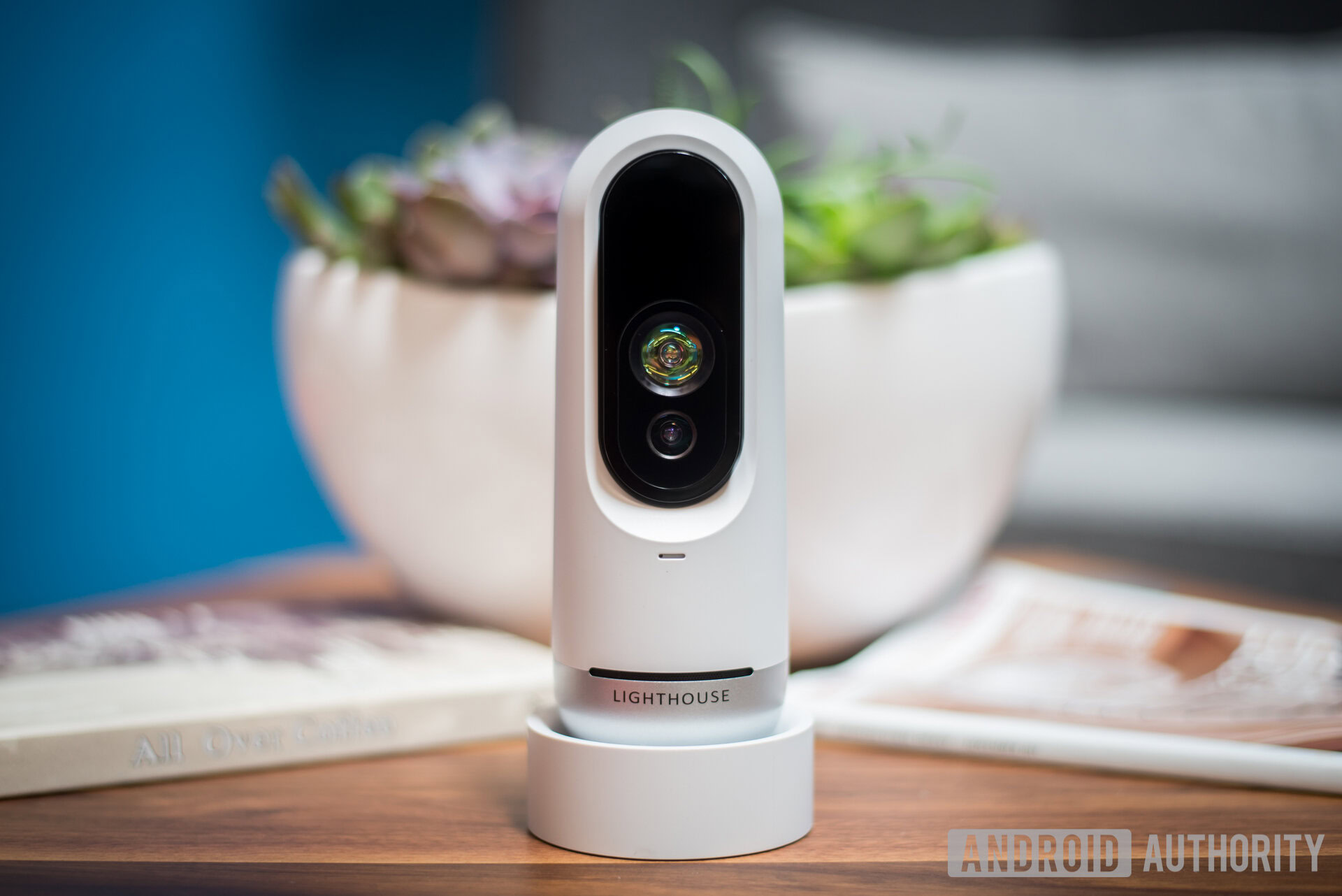
There’s security cameras, and then there’s smart cameras, but neither is really smart, as they still typically rely on user input before performing specific actions. What if there was another way, one that was truly smart? Lighthouse hopes that combining Artificial Intelligence with a set of smart security features will allow security cameras to be truly smart.

Lighthouse is the first home security camera that combines a regular internet-based camera with the power of AI. The company was founded by Alex Teichman, who led Stanford’s research on self-driving car perception, and Hendrik Dahlkamp, whose previous companies ultimately led to the creation of Google Street View and Google Maps’ turn-by-turn directions. Lighthouse was the first incubee at the Silicon Valley incubator, Playground Global, that Andy Rubin co-founded alongside Peter Barrett, Matt Hershenson and Bruce Leak.

What makes Lighthouse unique is that the company aims to combine natural language requests of its AI, rather than the current model of defined alerts and reactive measures. Thanks to a custom 3D sensor and proprietary AI, Lighthouse can distinguish between animals, children and adults, and HaloVision displays an outline when referencing either humans or pets.
For example, rather than replaying hours of footage to find out who broke a lamp, you can ask who was jumping around the living room between certain times. Or you can ask what time your kids got home or whether your dog walker came today, and the software will specifically replay the incident you’ve asked for.
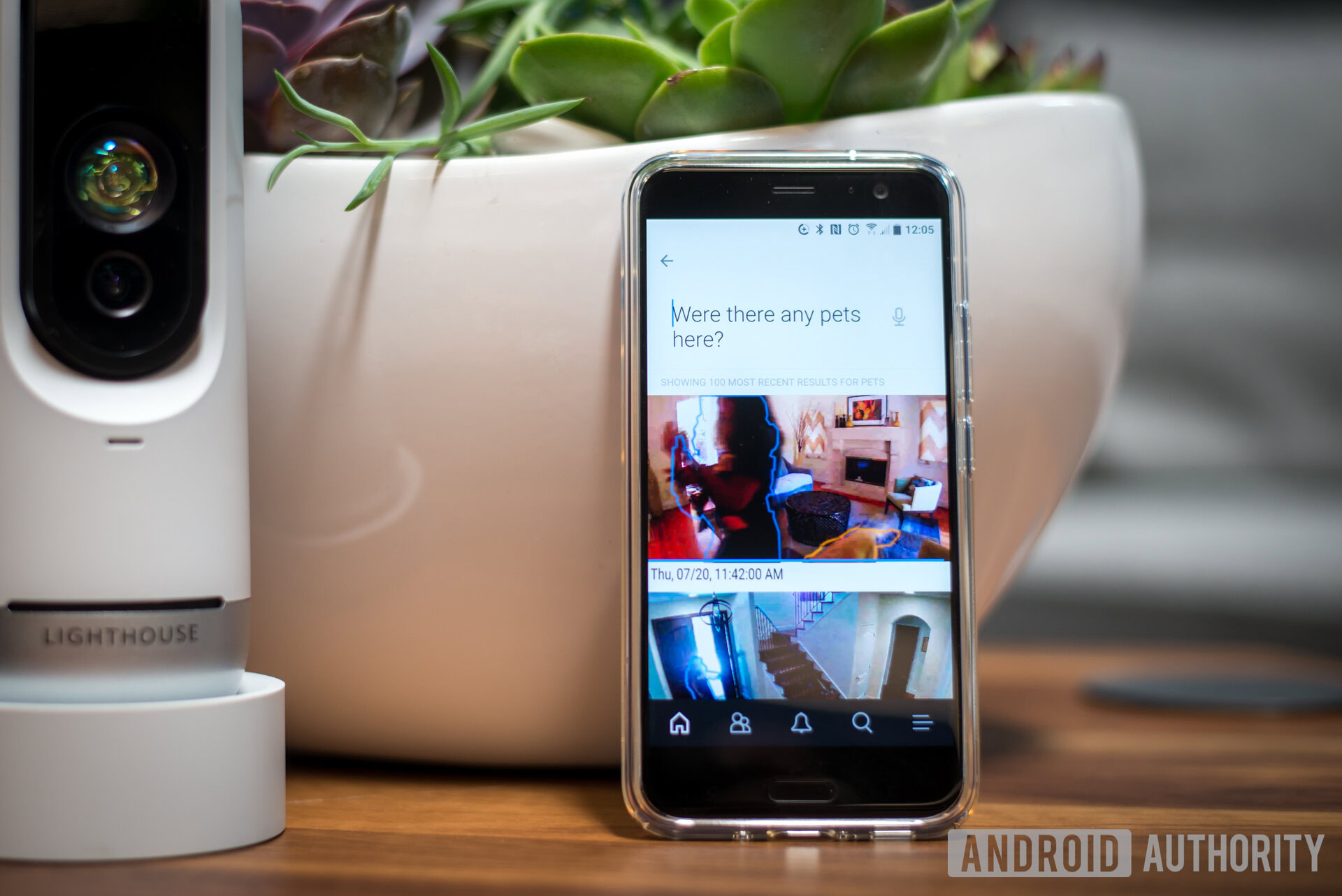
Like its namesake, Lighthouse also features the usual array of features found in a regular smart security camera, albeit with some welcome improvements. The first of these is its alerts, as Lighthouse promises to only trigger alerts for unknown people, by learning what your family and regular visitors to your house look like. In our demo, it recognised the difference between the male father and the female dogwalker.
For the times when there are strangers in the camera’s field of view, you’ll get an alert straight to your phone and you can then watch the scene live in Full HD. From there you can sound a siren, speak through the camera – such as welcoming someone to your home or warning them they’re on camera – or call the police, all from the app.
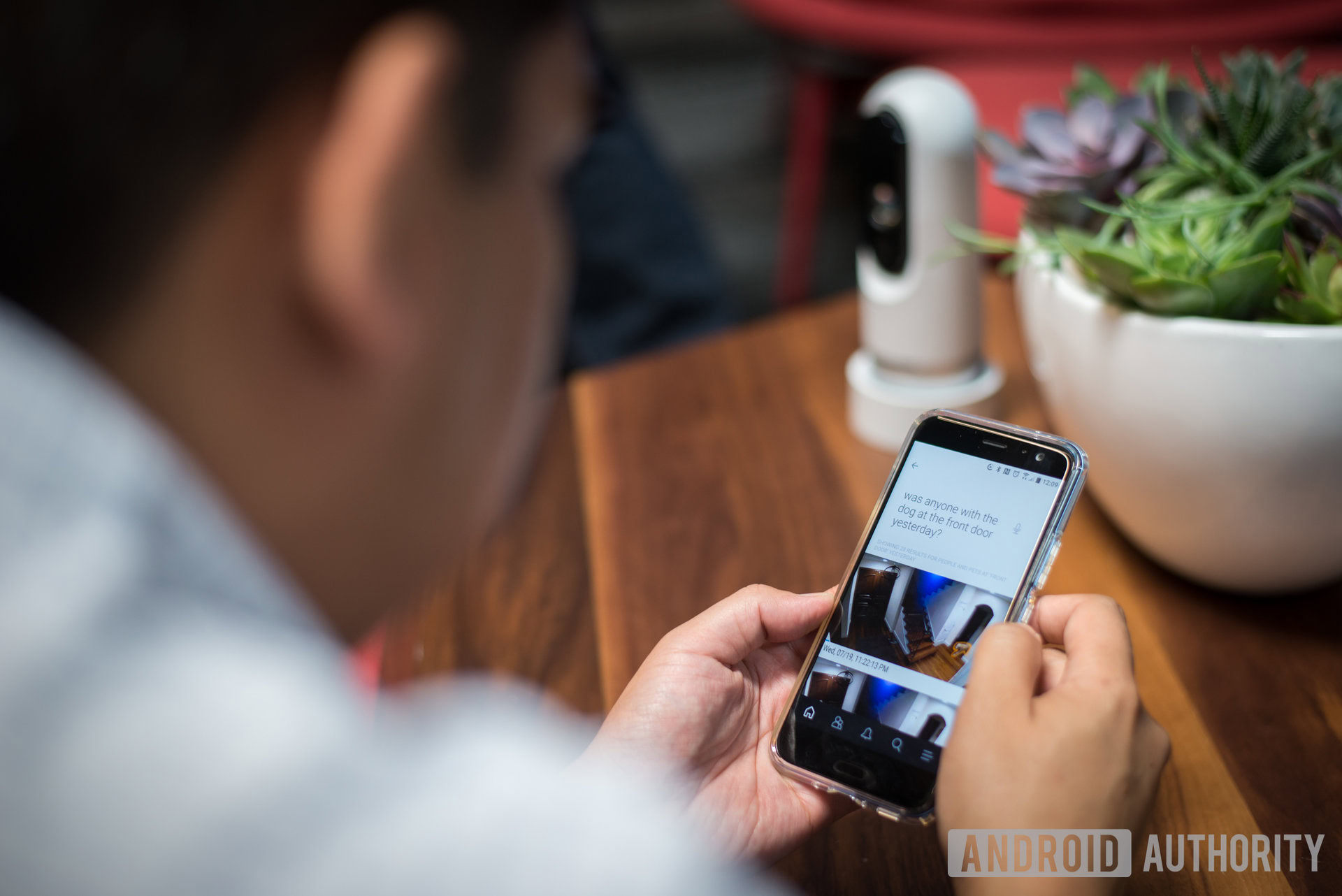
The biggest issue with most security cameras is that you need to trawl through the footage to find an incident. With Light House, you simply ask a question naturally to get straight to the point. There’s also one-minute daily recap videos allowing you to view timelapse videos of activity, which automatically skip any period of inactivity.
Combining AI with a smart security camera means you can set up pings (aka alerts), and this is where Lighthouse stands taller than any other security camera. Traditionally, using a smart camera relies on you to ask the right questions to find the information you’re looking for. Lighthouse turns this on its head with its alert system which can ping you when something does, or doesn’t, happen (like a delivery not showing up on time). Rich notifications mean you can get a preview of the scene right from your phone’s lock screen, without needing to unlock your phone.
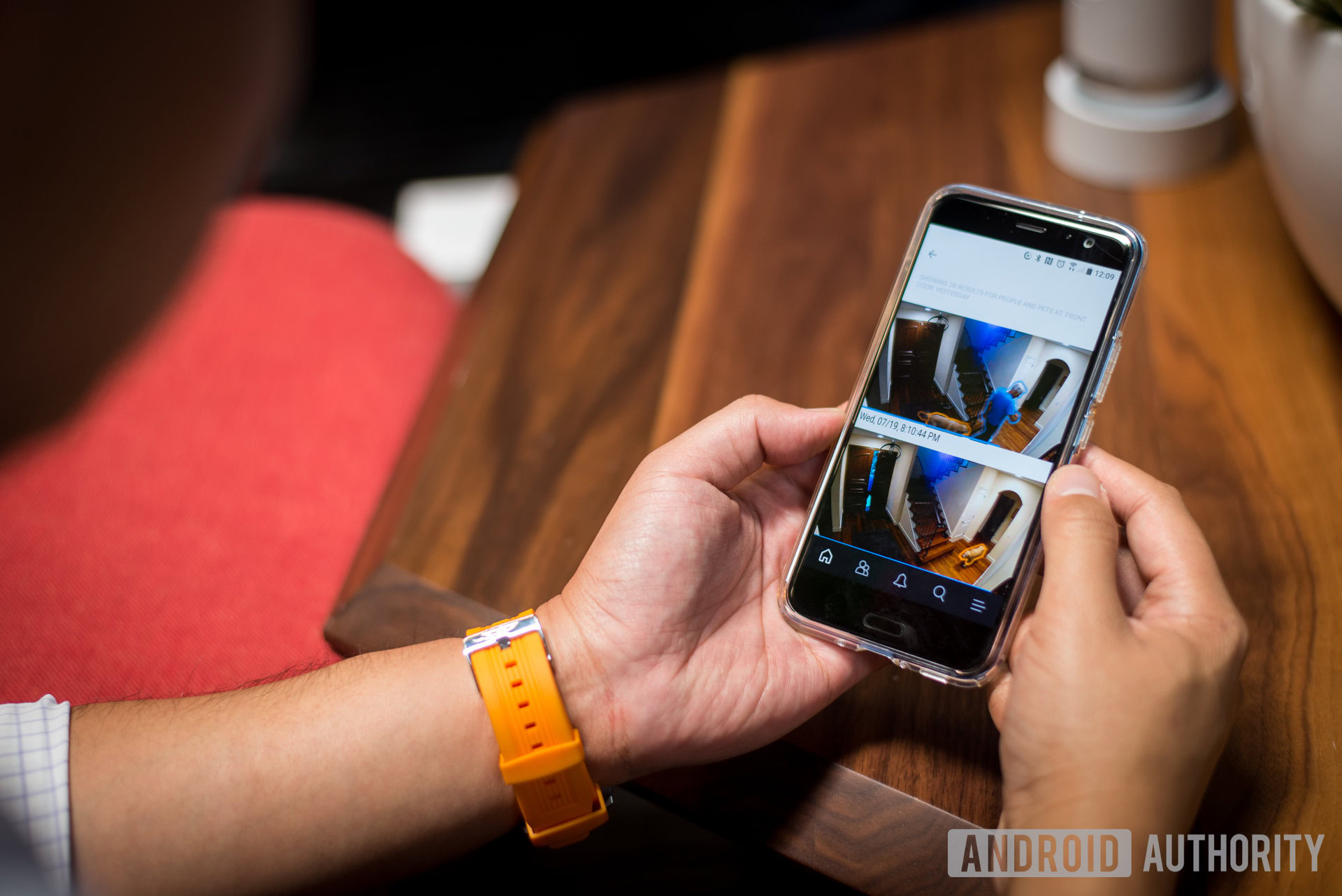
For busy working parents, you can set up really useful alerts like “if you don’t see the kids by 3pm when I’m away, let me know”, “Ping me if the dog walker doesn’t arrive between 2pm and 4pm” and “If the dog jumps on the kitchen table, let me know”. If you have elderly parents, Lighthouse could be a good way to ensure they’re ok. For example, if your mother usually comes down for breakfast by 7am, you can set an alert so Lighthouse lets you know if she deviates from this or doesn’t come down by 8am or 9am, which could be the fastest way to react.
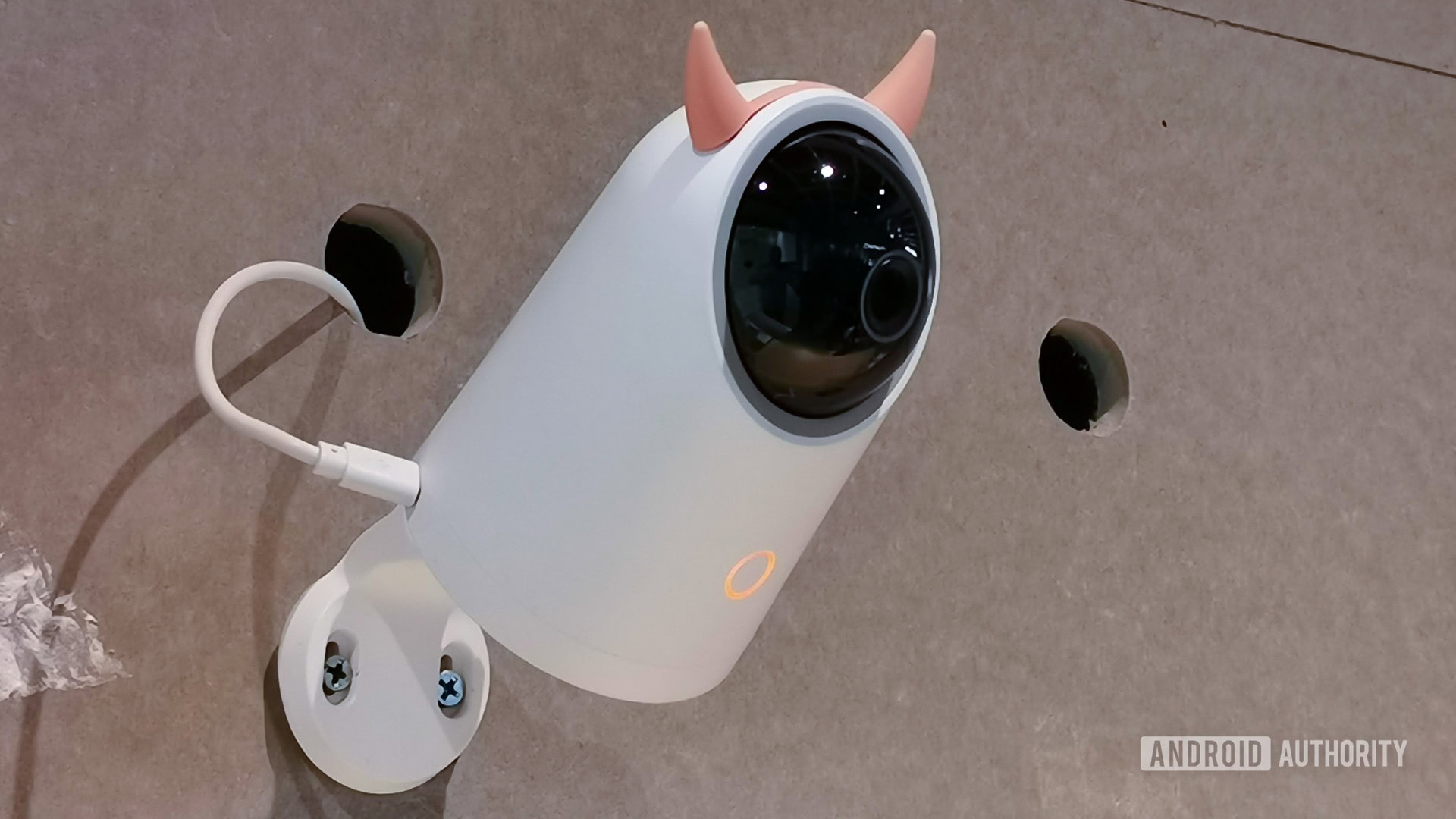
Lighthouse itself requires mains power and offers 1080p Full HD video that can be viewed live, whether in reaction to an alert or otherwise. During our demo, we tested the night vision and the company has managed to develop a camera that’s as capable at night as it is during the day. The camera sports a 95° diagonal field of view and can be tilted up or down on the included table base, or with a wall mount that can be purchased separately.
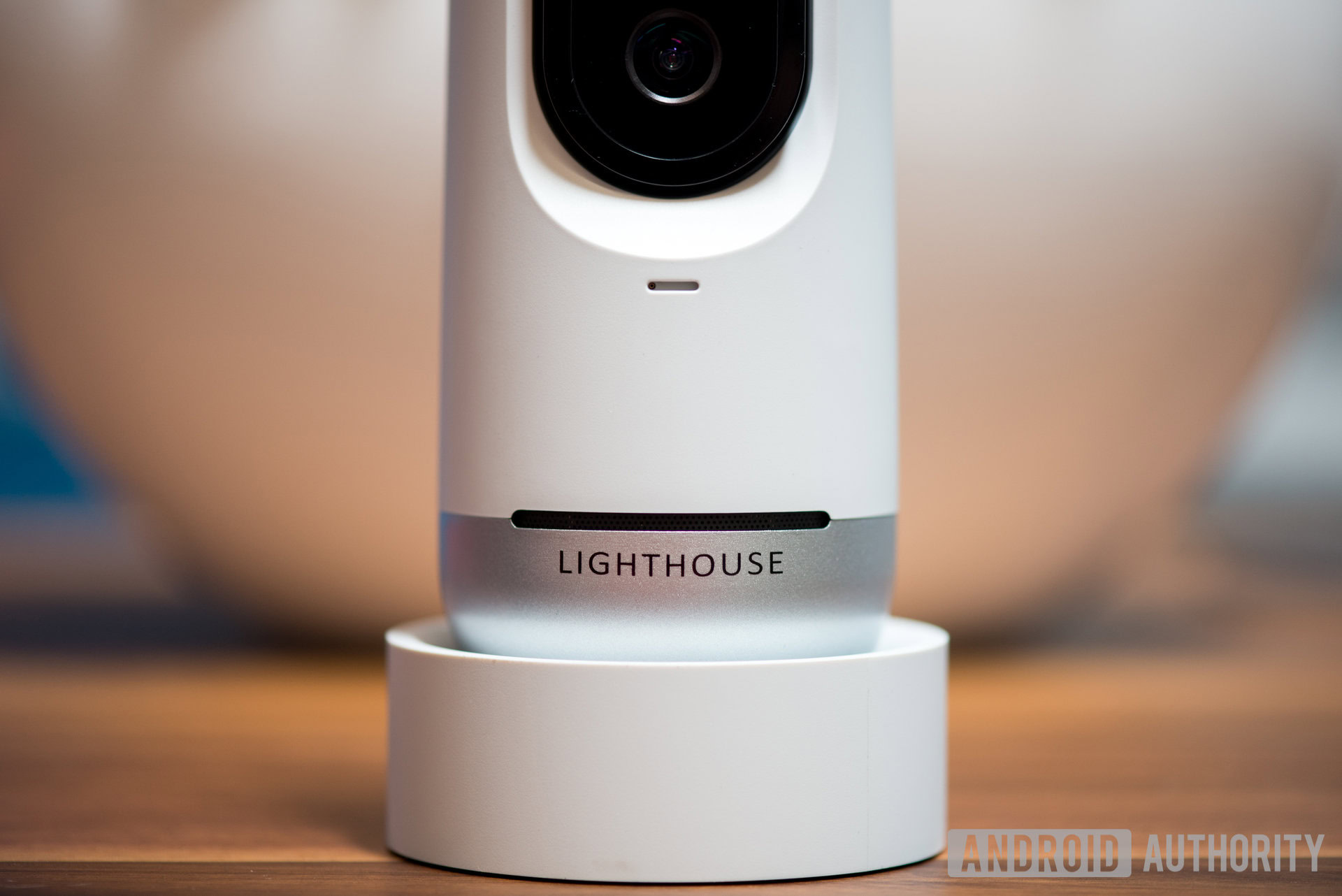
It’s not entirely perfect however, and the big potential downside right now is the lack of integration with popular service such as Hue lights, Alexa, Google Home or music services such as Spotify. The company has suggested that it will update the features of Lighthouse based on user feedback in the near future, but the core feature set is large enough for it to more than fulfil its promise.
In its current state, Lighthouse aims to disrupt the security camera industry and appears to have the capability, and backing, to do so. However, the company’s long-term success will be defined by its ability to be able to adapt to user needs and add features in a timely manner. Even if it doesn’t, Lighthouse proves that adding Artificial Intelligence and natural language cognitive capabilities to a smart camera provides an entirely-new way of looking at how we protect our homes.
We’ll bring you in a full review once its available, but for now, what do you think of Light House and is this a smart security camera you’d like in your home? Let us know in the comments below!